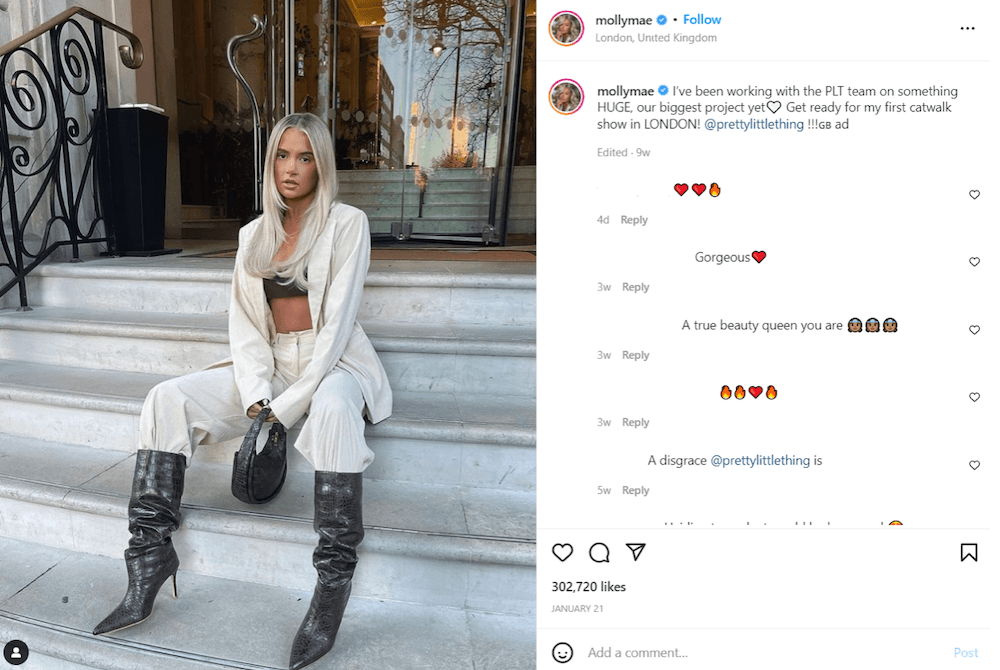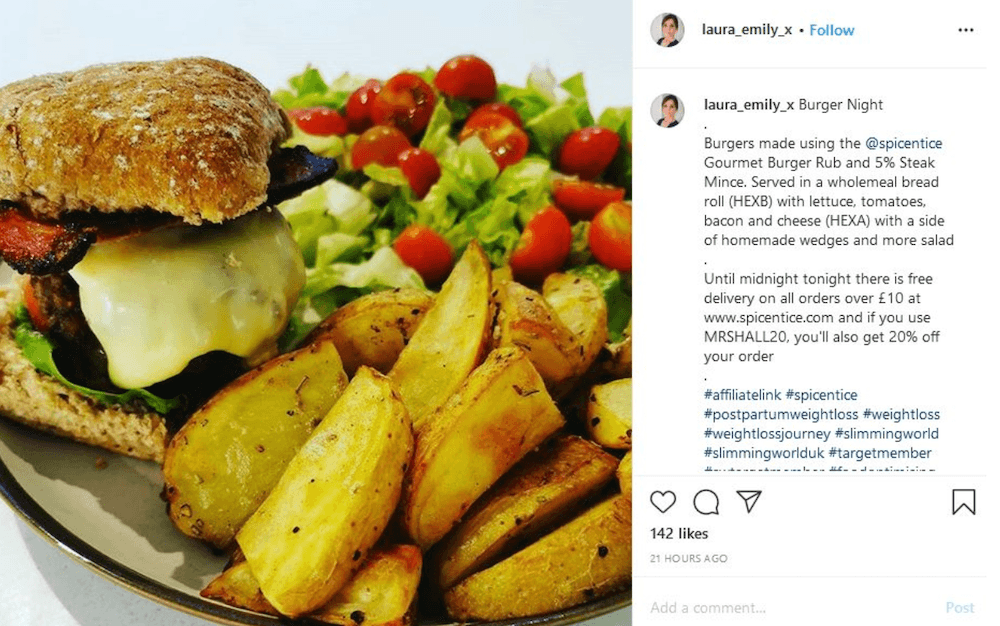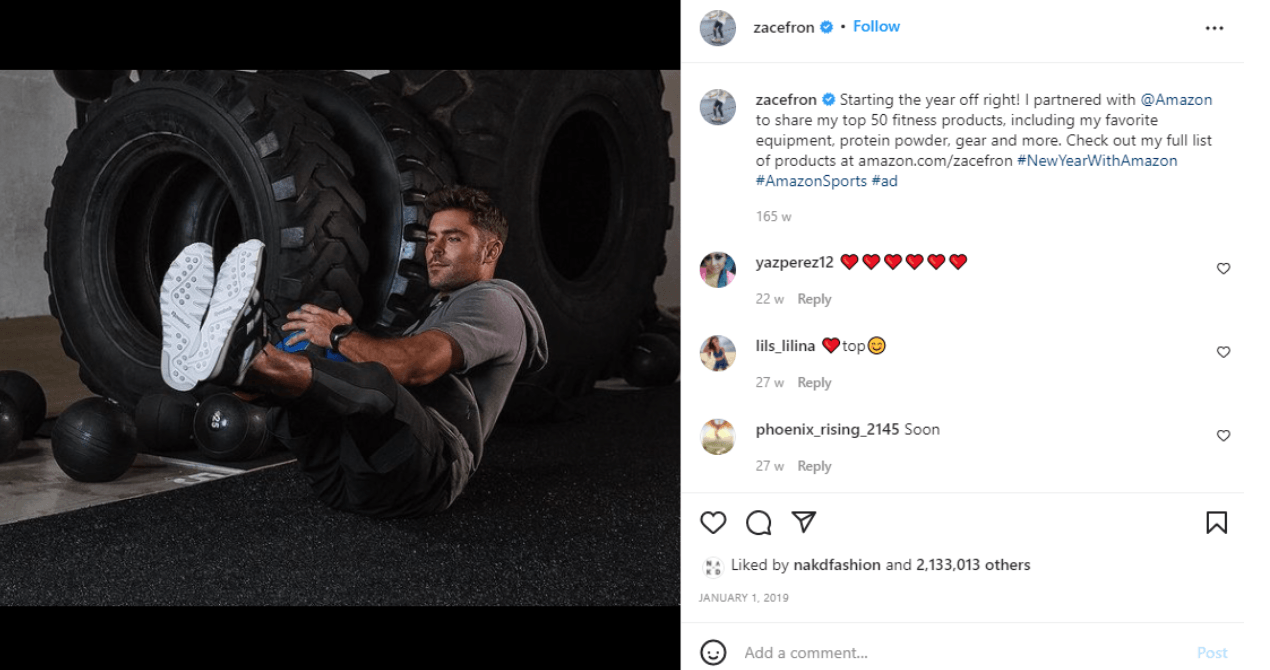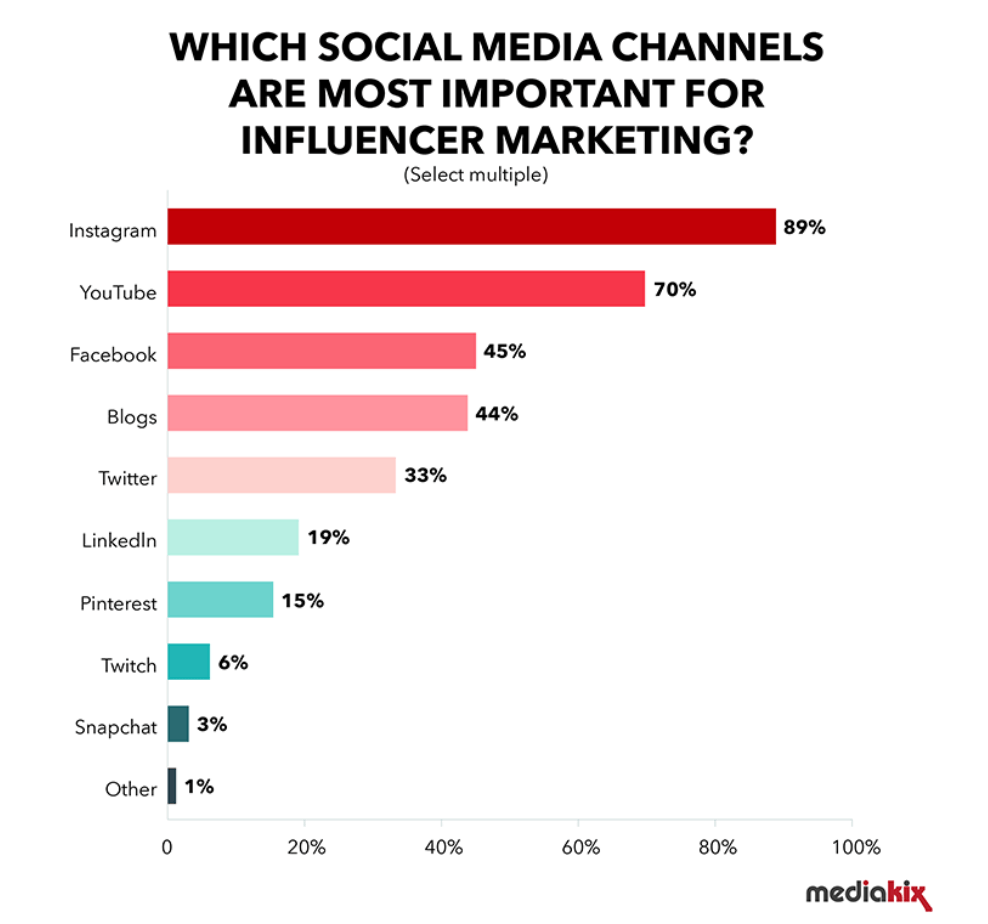Influencer marketing is one of the best marketing strategies a business can use in today’s online world thanks to its ability to reach your target audience in a uniquely authentic way.
For every dollar a business spends on influencer marketing, they make $18. That’s not an ROI you can afford to ignore. Influencer marketing builds trust with new customers as they’re seeing products being used by real people, helping to cost-effectively acquire new customers.
As well as a way to acquire new customers, your influencer marketing activity can also be a powerful retention tool. By making your influencers feel special through high-quality customer experiences and being made to feel like part of the brand journey, they’ll stay loyal for longer.
What is influencer marketing?
Influencer marketing is when an influencer works with a brand or business to promote its products, services, or even its loyalty program, typically by mentioning or endorsing a brand. Influencer marketing also contributes to retaining customers and building an online brand community.
To increase connection with followers, some influencers may use a video calling app to speak live to their followers about products they’re promoting or join a live session alongside a brand.
Types of influencer marketing
The core of influencer marketing is getting an influencer to promote or endorse your product or service to their audience, and there are many ways to do this:
1. Sponsored content
This is one of the most common influencer marketing methods. It’s any social media post that contains an ad for a product or service. For example, a clothing brand might pay an influencer to promote their clothes by posting photos of themselves wearing the brand’s clothes and adding a link to the brand’s website, just as Molly-Mae does when she posts photos of herself wearing clothes from PrettyLittleThing.

2. Discounts/affiliate links
A powerful influencer marketing tool is influencer-specific discounts. These discounts can be tracked via affiliate or referral links. Discounts are almost always combined with sponsored content. For example, influencer Laura Emily often shares posts with discount codes for online meal and spice kit brand, Spicentice.

With a loyalty program you can transform your existing customers into micro-influencers as they can generate their own unique referral URL.
3. Contests and giveaways
Contests and giveaways are effective because everyone loves free stuff. It’s important to target the right influencers here, as they’ll only offer products or services that they know their followers are interested in. Influencer contests/giveaways draw a lot of attention and can motivate customers to become a part of a loyal customer community.
Giveaways demonstrate that a business is willing to reward people for being involved with the company, which helps to cultivate an emotional connection between consumers and the brand as the consumer has been made to feel valued.
This motivates people who’ve never purchased from a company before to become long-term customers because they know that they’re likely to have more chances in the future to win a prize or get a freebie. These giveaways make existing customers feel like VIPs too, making them return to engage with the brand.
4. Putting influencer content on your channels
One of our favorite social media influencer tips is to collaborate – and that goes both ways. Imagine you’re a beauty brand. As well as having the biggest makeup gurus post about your products on their channel, why not have them model it for your Instagram? With this technique, the influencer appears on your channels, promoting your brand and driving lots of traffic to your social media.
For example, Maybelline’s Instagram features various makeup artists and celebrities wearing their products.
Influencer marketing is also a great opportunity to promote and grow the members of your loyalty program. To encourage people to become members of your business’s loyalty program, ask influencers to lead by example and join your loyalty program to experience the benefits and tell their audience all about the perks of becoming a member.
For example, influencers could say things like “I used my points to get…”. Influencers can be great ambassadors for your loyalty program as well as your products!
5. Brand ambassadors
If an influencer is a great fit for your brand, instead of a few sponsored posts, make them a long-term brand ambassador. Don’t worry about how to get brand ambassadors just yet. This is better suited for brands with a few influencer campaigns under their belt.

How to run your first campaign
So now that we know what influencer marketing is, let’s see how to run an influencer marketing campaign:
1. Choose the right social media platforms
Not every social media platform will suit your brand. Think about what they offer and where your intended audience might be:
- Instagram is best for sharing eye-catching photos or video content
- YouTube is best for video content of any length, providing more options than Instagram
- Facebook allows for a mix of text, photo, and video content as well as Facebook Live for live streaming
- TikTok is great for reaching a younger audience through short videos
- LinkedIn is better suited for business professionals or entrepreneurs

2. Create brand guidelines
Give influencers creative freedom to represent your brand. But also create some general brand guidelines to follow to ensure that they represent your brand’s values and communicate in a way that’s consistent with your brand voice.
3. Pick the right influencer
First, consider what level of influencer you want to work with:
- Mega-influencers have more than a million followers and drive huge levels of engagement
- Macro-influencers have 500k followers and up. Despite not having the same reach as mega-influencers, macro-influencers are usually in high demand
- Mid-tier influencers can have anywhere from 50k to 500k followers
- Micro-influencers have 10k-50k followers
- Nano-influencers have 1k-10k followers
It’s important to choose the right influencer for your brand. Your first instinct might be to reach out to the mega and macro-influencers, but their larger audiences don’t always lead to more success. Smaller influencers are able to develop a stronger connection with their followers and can have much higher engagement rates than mega-influencers.
Asking micro-influencers will be a lot more cost effective than asking someone who has millions of followers and expects big bucks for promoting a brand.
And don’t forget about your most valuable influencers – your loyal customers. These are often your biggest (and cheapest!) brand advocates. Reward your loyal customers by putting them in a hidden loyalty tier. You can reward them with exclusive perks and give them loyalty points for creating authentic UGC.
When choosing an influencer, you need to consider the causes that your brand represents and ensure that any influencers you choose align with those causes. Your loyalty program should support what your influencer(s) talk about when promoting your brand.
This will demonstrate that your business follows through on its promises and acts in accordance with its values, which promotes trust in your brand and deepens relationships with your customers.
You could also use a UGC platform like LoudCrowd, which scans through user-generated content to help you find your most valuable social advocates.
4. Reach out
Once you’ve found an influencer you’d like to work with, you need to contact them. This can simply be done through DM. Many influencers may also have a specific email for marketing inquiries in their bio.
If you’re inviting your loyal customers to be influencers on your behalf, make sure to reach out to them via email and be clear about the benefits they’ll get in return for creating content for you.
5. Run the campaign
After contacting an influencer and having them agree to a partnership, the final step is to decide what type of influencer marketing campaign you’d like to run and work out the details with the influencer. Then let the campaign run.
6. Analyze and repeat!
Okay, so there’s technically one more step. Once you’ve run your first campaign, it’s time to look at the results. What worked? What didn’t? What will you do next?
What now?
Now that you know why and how you should run an influencer marketing campaign, all that’s left is to contact your chosen influencers and work out a marketing campaign deal.
Influencer marketing is a relatively new but very powerful marketing tool that can build a great ROI-positive customer community. We hope this guide has made influencer marketing campaigns easier to understand – and we can’t wait to see your brand on our favorite influencer’s page.





